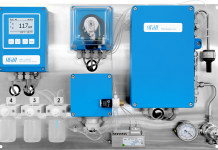Scientists have developed a new way to genetically engineer bacteria called Clostridia.
While certain Clostridia are the causative agents of diseases such as antibiotic-associated diarrhoea or food-borne botulism, the vast majority are harmless and can be used to make chemicals and fuels, and even to treat cancer.
Through the use of their proprietary technology based on the genome-editing tool CRISPR-Cas9, scientists at Nottingham’s BBSRC/EPSRC Synthetic Biology Research Centre (SBRC) can now rapidly alter the genetic make-up of all types of Clostridia tested to date.
Alterations include the removal of undesirable traits, such as toxin production or antibiotic resistance, enhancing their anti-tumour potential, or increasing the productivity of chemical and fuel manufacture.










